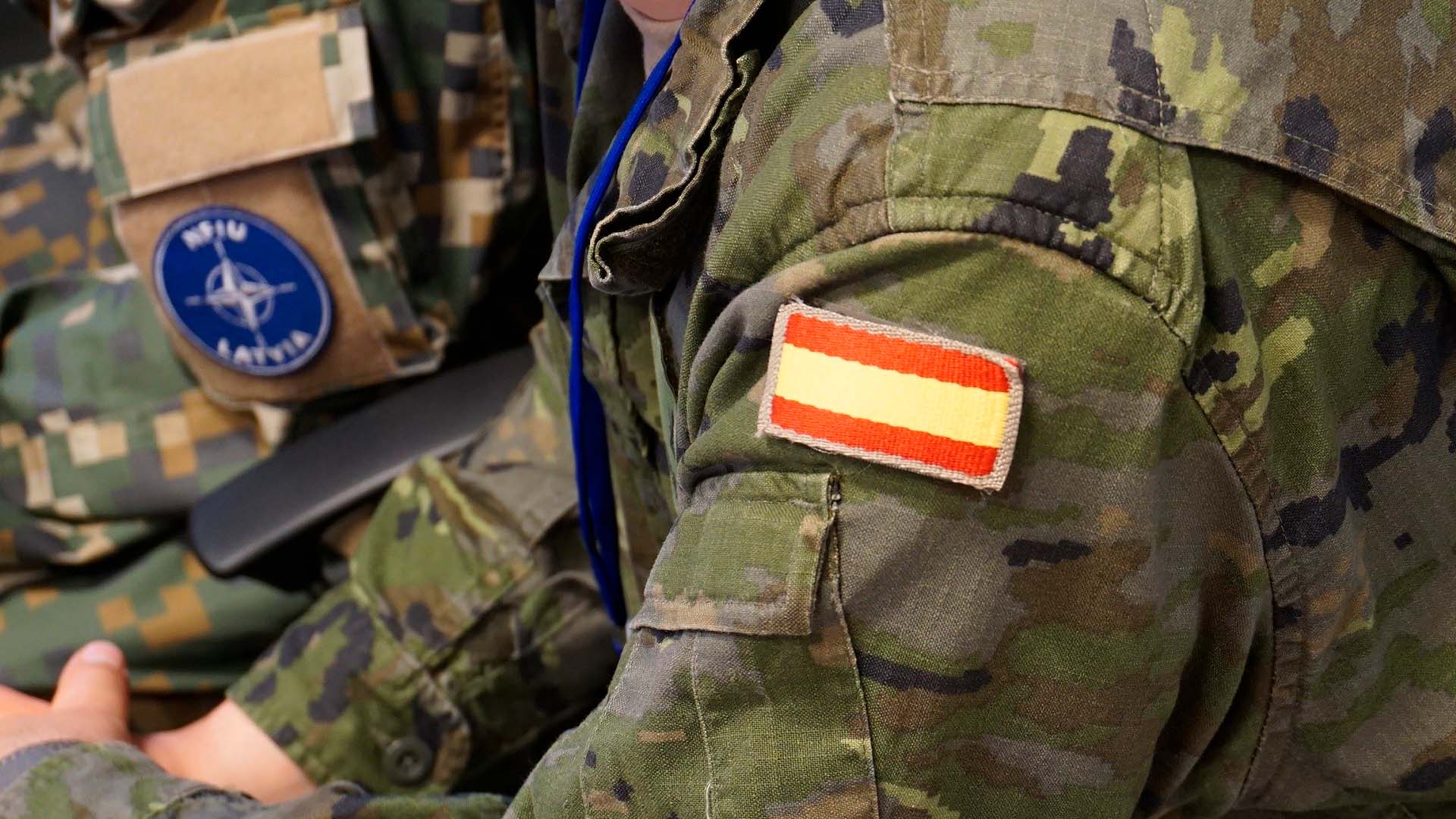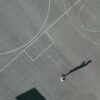Prime Minister Pedro Sánchez successfully persuaded the EU to rebrand its multi-billion euro initiative, originally called ‘Rearm Europe,’ designed to boost the bloc’s military power amid concerns that the US might withdraw its security guarantees. However, he is facing opposition domestically, where political support remains limited for raising Spain’s comparatively low defence expenditure.
Spain spent US$22.27 billion on defence in 2024, the 10th largest contribution in absolute terms among the 32 NATO allies, but in relative terms it was the lowest at 1.28% of GDP (…).
‘I don’t like the term rearm’, said Sánchez, backed by his Italian counterpart Giorgia Meloni. ‘I think the EU is a political project of soft power. We also have a duty nowadays with hard power. But it’s very important to stress our assets of soft power’. The EU’s plan is now innocuously known as ‘Readiness 2030’.
Spain spent US$22.27 billion on defence in 2024, the 10th largest contribution in absolute terms among the 32 NATO allies, but in relative terms it was the lowest at 1.28% of GDP, according to preliminary figures (see Figure 1). The government disputes that figure but has yet to specify the real one. Sánchez promises to reach the alliance’s target of 2%, set in 2014, by 2029.
Figure 1. Defence spending, 2014 and 2024 (% of GDP)
| Country | 2014 | 2024 |
|---|---|---|
| Poland | 1.84 | 4.26 |
| US | 3.38 | 3.71 |
| UK | 2.14 | 2.28 |
| Germany | 1.19 | 2.12 |
| France | 1.82 | 2.06 |
| Italy | 1.14 | 1.49 |
| Spain | 0.92 | 1.28 |
President Donald Trump accuses Europe of freeloading off the US and wants it to pay much more for its own security. He has also threatened to cut off US support for Ukraine. Trump has floated a whopping 5% as NATO’s new spending target. Mark Rutte, NATO’s new Secretary-General, talks of a target of more than 3% to be approved at the alliance’s summit in June. Either way, the pressure is on Spain. The UK plans to increase its annual defence expenditure to 2.5% by 2027, Sweden to 3.5% by 2030 and German lawmakers have also approved a huge rise in military spending.
Spain’s brisk economic growth of 3.2% last year and a projected 2.5% this year (much higher than the euro zone average in both years) and with it record tax revenue should make it easier for the government to find more funds for defence, without cutting welfare spending as Sánchez has vowed. The 2024 fiscal deficit was below the EU’s benchmark of 3% of GDP for the first time since 2018. The government would need to spend around €4 billion more a year to reach the 2% defence target.
The problem is political. Sumar, an alliance of hard-left parties and the junior partner in the Socialist-led minority government, voted in favour of the motion presented last month by the Galician National Bloc (BNG) rejecting the EU’s mega investment in defence and more spending by Spain, whilst calling for Spain to leave NATO. The non-binding motion was also supported by the separatist Catalan Republican Left (ERC), EH Bildu, a coalition descended from the political wing of the defunct Basque terrorist group ETA, and the radical Podemos, all of whom normally back the government. However, the Socialists, the conservative Popular Party (PP), the hard-right VOX, the Basque Nationalist Party and the separatist Together for Catalonia voted against the motion (302 of the 350 MPs).
While the PP, with 137 seats in congress, voted with the Socialists its parliamentary support for increased defence spending is not guaranteed. The two parties are at bitter loggerheads and their leaders barely talk to each other. The issue is also complicated by Sánchez failing so far to win approval for the 2025 national budget. Without approval he will be forced either to roll over the 2023 budget for the second consecutive time or to call a general election –the latter being the PP’s preferred outcome, as it sees an opportunity to exploit the divisions within the government and among its parliamentary allies–. Sánchez previously called a snap election in 2019 after parliament rejected his budget.
In 1986 the Popular Alliance, the forerunner of the PP, urged its supporters to abstain in the referendum on remaining in NATO (joined in 1982), despite being in favour, in the hope that the then Socialist government would lose and have to call an election. That opportunistic gamble backfired.
Spain did not join the integrated military structure until 1999. Its armed forces are relatively small (see Figure 2). Around 3,500 troops participate in NATO missions in Eastern Europe and others in UN peacekeeping, and the US has an important naval base at Rota in southern Spain under an agreement renewed in 2023.
Figure 2. NATO military personnel, 2024
| Country | Number |
|---|---|
| Poland | 216,100 |
| France | 204,700 |
| Germany | 185,600 |
| Italy | 171,400 |
| UK | 138,100 |
| Spain | 116,00(1) |
Sánchez is one of Europe’s staunchest supporters of Ukraine’s resistance to Russia’s invasion. He has visited Kyiv several times. Spain has sent Leopard tanks and Hawk air defence systems, trained more than 7,000 Ukrainian troops and will provide €1 billion in military aid this year, similar to that in 2024 (see Figure 3).
Figure 3. Military aid to Ukraine, 24 January 2022 to 31 December 2004 (€ bn)
| Country | € bn |
|---|---|
| US | 64.3 |
| Germany | 12.6 |
| UK | 10.0 |
| Canada | 2.6 |
| Denmark | 7.5 |
| Sweden | 4.7 |
| France | 3.5 |
| Poland | 3.6 |
| Italy | 1.4 |
| Spain | 0.8 |
Spain spent €8.2 billion on Ukrainian refugees between 2022 and 2024, taking in more than 200,000 people, the fourth largest number (see Figures 4 and 5).
Figure 4. Government support to Ukraine: total aid with and without refugee costs, 24 January 2022 to 31 December 2024 (€ bn)
| Country | Refugee costs only | Total aid without refugee costs |
|---|---|---|
| US | – | 114.5 |
| Germany | 35.9 | 17.3 |
| Poland | 29.4 | 5.0 |
| UK | 3.5 | 14.8 |
| Netherlands | 3.1 | 7.3 |
| Spain | 8.2 | 1.5 |
| France | 4.3 | 4.9 |
| Denmark | 1.1 | 8.0 |
Figure 5. Estimated number of refugees from Ukraine in the EU and UK since February 2022 (1)
| Number | % of the population | |
|---|---|---|
| Germany | 1,243,445 | 1.4 |
| Poland | 998,070 | 2.7 |
| UK | 254,035 | 0.4 |
| Spain | 223,915 | 0.4 |
| Romania | 179,820 | 0.9 |
| Italy | 170,390 | 0.3 |
| Slovakia | 163,675 | 3.0 |
| Netherlands | 121,645 | 0.6 |
| Ireland | 112,680 | 2.1 |
| Belgium | 87,365 | 0.7 |
As well as the political resistance, Spanish society has a strong streak of pacifism, following the 1936-39 Civil War and the 36-year military dictatorship of General Franco. The country also did not take part in World War I or II. Spain’s participation in the 2003 Iraq war, through 1,300 peace-keeping troops sent by the PP Prime Minister José María Aznar, a key ally of US President George Bush, was highly unpopular. More than 90% of Spaniards were against the war, according to the CIS state pollster. When the PP lost the 2004 election, the very first measure taken by incoming Socialist Prime Minister José Luis Rodríguez Zapatero was to withdraw the troops, provoking the wrath of the US Administration.
A majority of Spaniards, however, are in favour of peacekeeping troops in Ukraine. That scenario remains highly unlikely as Russia has already rejected the deployment of any NATO or EU peacekeeping force after a definitive truce has been achieved (see Figure 6).
Figure 6. Percentage of respondents in favour of sending peace-keeping troops to Ukraine (%)
| In favour | Against | |
|---|---|---|
| Spain | 53 | 28 |
| UK | 53 | 27 |
| France | 49 | 29 |
| Germany | 37 | 47 |
| Italy | 36 | 45 |
Sánchez has called for a broader definition of defence spending to include cyber security, anti-terrorism and combating climate change. That idea might help him domestically as it dilutes the military aspect but it has not gone down well with countries that have already reached the 2% target and who see more immediate threats. Together with France and Italy, he also rejected European Commission President Ursula von der Leyen’s proposal to finance increased military spending through loans and not grants so as to avoid increasing debt loads.
Whether Sánchez gets his way with parliament and it approves more defence spending remains to be seen.



